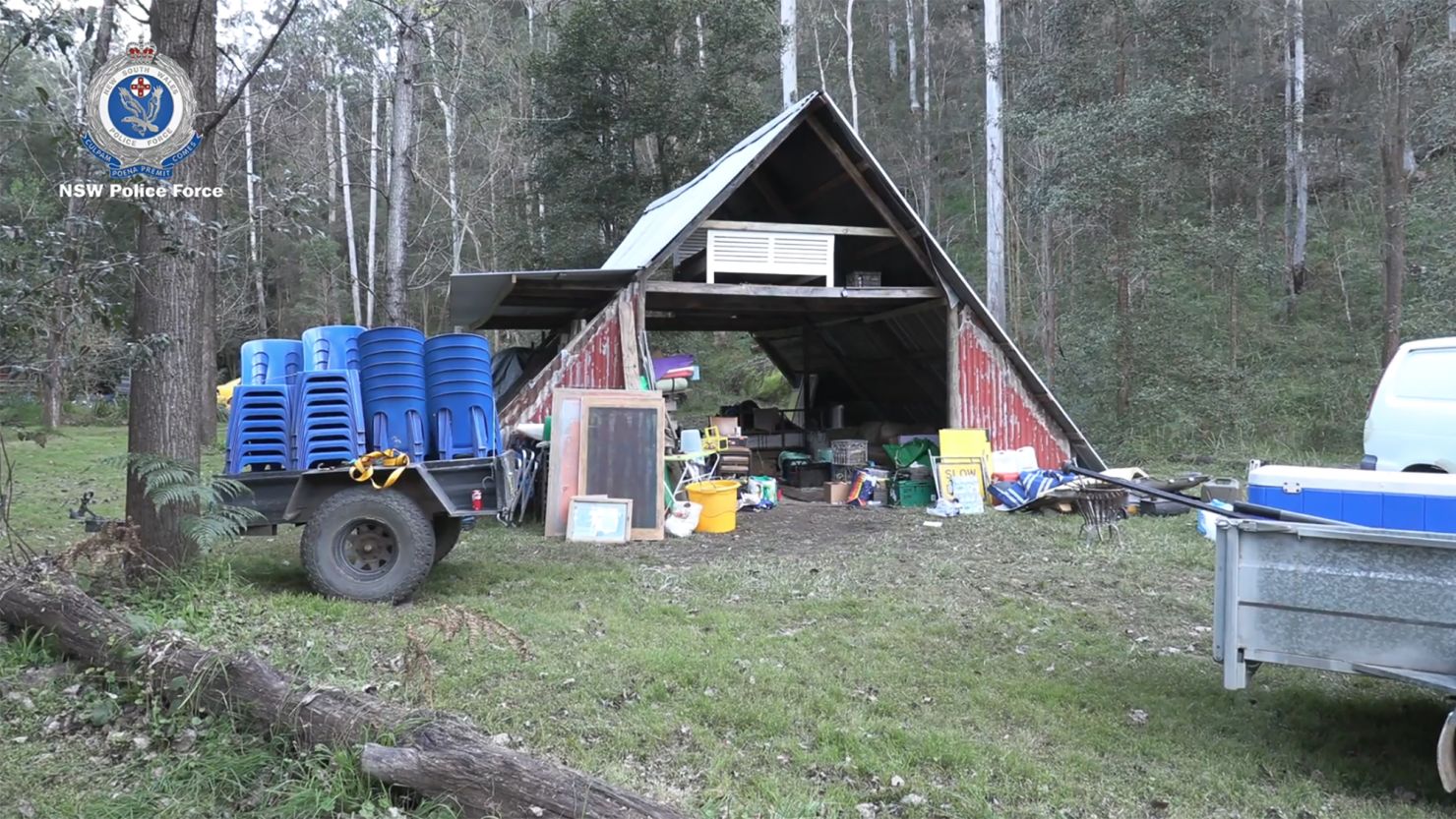Climate activists were sharing toast and coffee at a private campsite in mountains outside Sydney last Sunday when someone noticed movement on a nearby slope.
A member of the group went to investigate and found two figures in full camouflage gear, who appeared to radio for help from a black car that sped to the site.
“We were genuinely confused about why these people were on the property,” said Zianna Fuad, a 29-year-old member of climate activist group Blockade Australia.
Video released by the activists shows several of them sitting on a car with deflated tires as an older woman yells expletives at the four occupants, including the two people dressed in camouflage.
“We thought that maybe they were right-wingers that were spying on us,” Fuad said.

It turns out they were police.
New South Wales state police divulged that the camouflaged men were officers from Strike Force Guard, a special squad formed in March to “prevent, investigate and disrupt unauthorised protests,” particularly Blockade Australia’s divisive “week of resistance” that has already caused chaos in central Sydney and angered some road users.
During the Monday morning rush hour, protesters marched through the central business district, and one activist locked herself in a car, blocking access to the Sydney Harbour Tunnel.
The increased police surveillance of protesters is part of the state’s tough new approach to disruptive climate action that rights groups claim sets a “disturbing precedent for protest rights.”
After protests earlier this year, some climate activists were ordered not to leave their homes under strict bail conditions that could see them jailed if they step outside. Others were deported.
Sophie McNeill, Australia researcher at Human Rights Watch (HRW), said climate protesters are being “disproportionately subjected to vindictive legal action by Australian authorities.”
NSW Police Minister Paul Toole said the protests were not peaceful nor authorized and would not be tolerated. “This disruptive, dangerous action is illegal and anyone who takes part will be arrested,” he said in a statement to CNN.
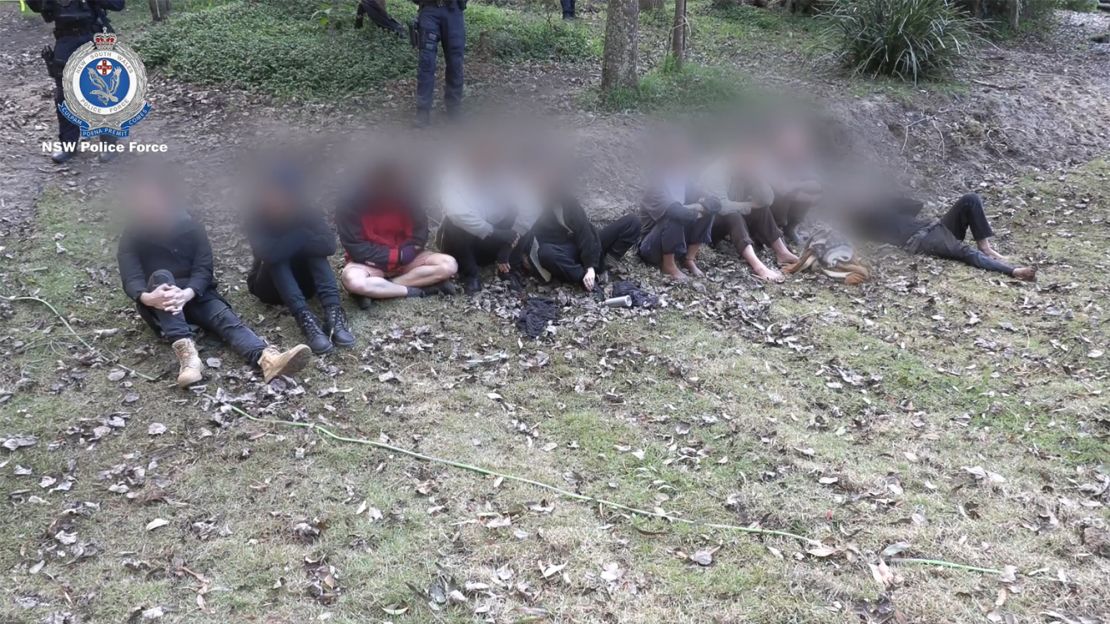
After last Sunday’s surveillance operation, 10 members of the protest group were charged with multiple offenses, including assaulting and obstructing a police officer, and destroying or damaging property.
Acting Assistant NSW Police Commissioner and Strike Force Guard Commander Paul Dunstan told reporters the officers involved “feared for their lives.”
Lawyer Mark Davis, who represents most of the defendants, said during court hearings several arrested activists were banned from contacting 15 people on a non-association list of climate activists compiled by police. Two were refused bail and at least one was banned from the state after being found to have breached her bail conditions by posting a smiley face on another group member’s Facebook page.
Relations between authorities and climate activists haven’t always been this fraught in Australia’s most populous state – the trouble really started last November, when Blockade Australia brought the world’s biggest coal port to a temporary halt.
Under house arrest
More than 166 million tonnes of cargo pass through the Port of Newcastle each year, including millions of tonnes of coal transported by rail from mines in the Hunter region.
But for 11 days in November 2021, activists from Blockade Australia disabled machinery and blocked rail lines leading to the port, 163 kilometers (101 miles) north of Sydney, on Australia’s eastern coast. Fuad said she and a fellow activist abseiled off a coal loader and for that they were banned from contacting each other for two years.
At the time, NSW’s then Police Minister David Elliott said disruptive action would not be tolerated, and in April, parliament approved tougher penalties, including two-year prison sentences and fines up of up 22,000 Australian dollars ($15,270) for illegal protests on roads, rail lines, tunnels, bridges and industrial estates.
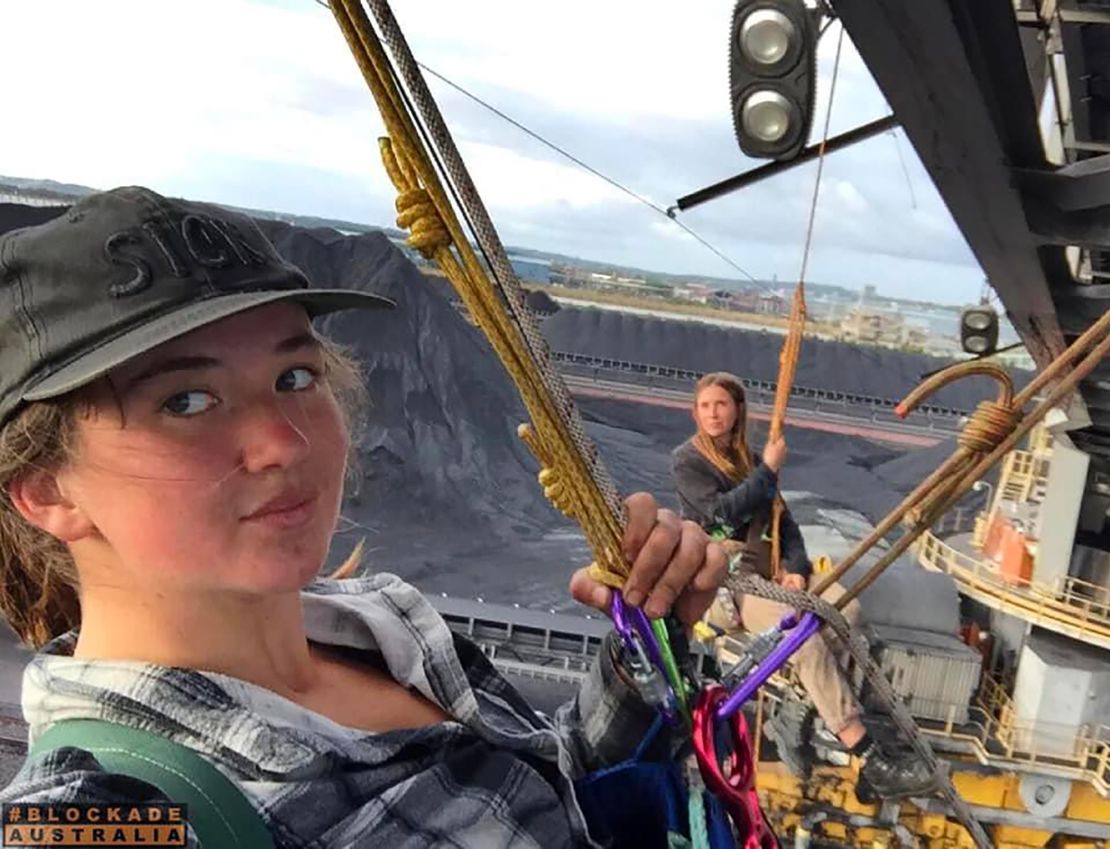
Before the law was passed, 39 civil society groups wrote an open letter calling the legislation an “unconscionable attack on protest rights.”
The signatories included the Human Rights Law Center and Greenpeace who, with the Environmental Defenders Office, previously published a report that found climate activists were “routinely receiving disproportionate and excessive penalties and bail conditions which restrict their freedom of association and assembly.”
Australia has a long record of climate inaction under the previous Liberal government that held power for nine years and was voted out during the federal election in May. It’s also faced multiple climate-related emergencies in recent years, including widespread flooding and record-setting bushfires.
The incoming Labor government has higher targets for emissions cuts but has refused to rule out new coal power stations. Australia’s wealth is linked to exports of coal and iron ore, and critics allege there are strong ties between government and the fossil fuel industry.
Climate activists say that bond needs to be disrupted with direct action, and they’re willing to risk their safety and freedom to do it.
But while Australians want more action on climate change, many have reacted angrily to Blockade Australia’s disruptive tactics. Davis, the lawyer, said the group was unpopular with the general public.
“The fact that they would dare block a road of course enrages people,” he said. “You shouldn’t be blocking roads, I understand that. But let’s not get hysterical about what that threat means, and why not have a bit of latitude for political expression.”
Violet Coco, from civil resistance group Fireproof Australia, spent 21 days under full house arrest after standing on a truck parked near Sydney Harbor Bridge, holding a flare, for 25 minutes in April as she explained the need for urgent climate action in a Facebook live broadcast.
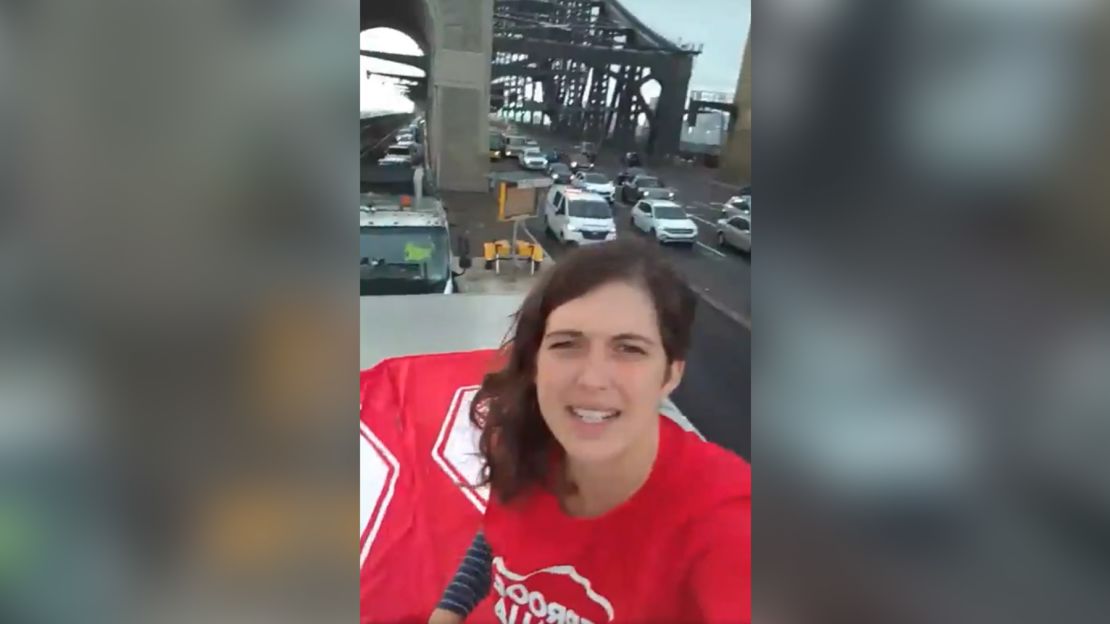
She was charged with seven offenses, including explosives charges for holding the flare, according to Human Rights Watch. She pleaded guilty to blocking traffic and disobeying a police order and was released on bail of 10,000 Australian dollars ($7,000) for the other charges with the condition she didn’t leave her apartment other than for medical emergencies and court appearances.
“Even during Covid we were allowed to go for an hour walk a day, and these bail conditions are harsher than repeat domestic violence offenders,” she said. “What are we doing giving those to peaceful protesters?”
Davis, the lawyer, said house arrest is normally reserved for violent offenders or those who pose a serious flight risk. “Bail is there to ensure you go back to court. It’s not there to punish you,” Davis said.
In May, Coco’s bail conditions were relaxed to allow the 31-year-old musician to leave her home between 10 a.m. and 3 p.m. – times chosen so she doesn’t disrupt peak hour traffic, she said.
She’s now living in Lismore, a northern NSW city wiped out by flooding in March, where she’s helping a community group to rebuild houses. She said she plans to apply for her bail conditions to be further relaxed.
“This is stupid,” she said. “I’m living in Lismore. There is no peak hour traffic.”
Banned from the state
Three months ago, Alex Pearse, a 32-year-old environmental scientist from Brisbane, was hanging from an eight-meter pole over rail tracks in Port Botany, NSW’s largest container port, blocking the supply chain for nearly two hours.
NSW Police said in a statement at the time that “railway authorities were required to stop all freight trains traveling on the line.”
Pearse said railway authorities were warned of impending action: “We don’t take this action unless we’re 100% sure that there are not going to be trains running, and we have other systems in place to make sure that that is the case.”
When police finally got him down he was charged with four offenses including encouraging the commission of a crime, based on a Facebook live broadcast he filmed while suspended from the pole.
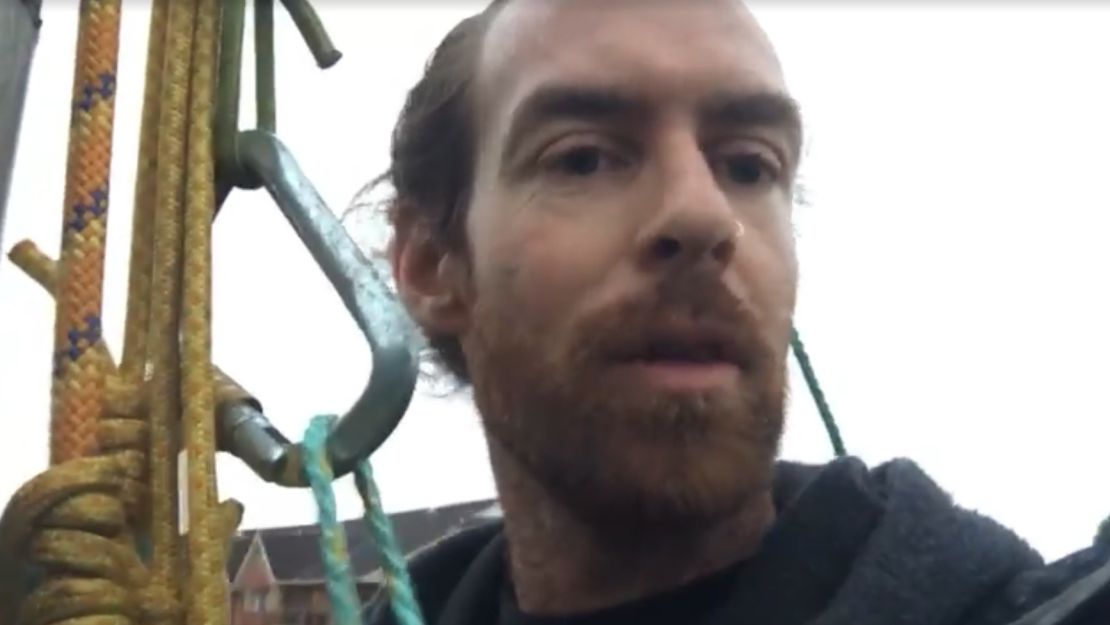
Pearse pleaded guilty to two of four charges and is banned from NSW while he awaits his next court appearance, with the condition that he checks in with Queensland police every second day. “They wanted to take away my passport and ban me from international airports,” he said, adding that the judge refused that request.
An environmental scientist, Pearse travels around Australia to monitor mangrove ecosystems and sees the damage caused by the climate crisis up close. His bail conditions have put a stop to that, and he has no idea when the court process will end.
“The level of surveillance and repression that is taking place on normal everyday people who just want to show that they are unhappy with the state’s response to climate change is unprecedented and frankly quite scary,” he said.
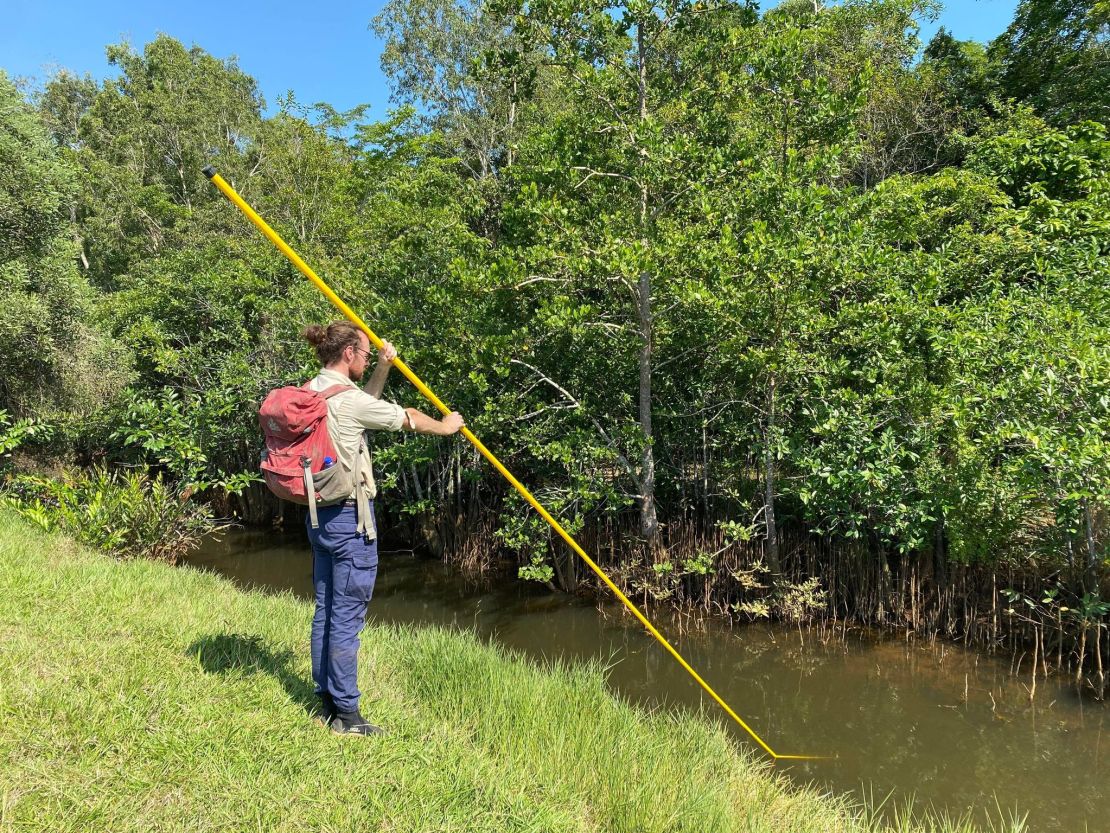
As both Coco and Pearse are banned from travel, they won’t be attending the “week of resistance” in Sydney. Nor will Arno, a 21-year-old German working holidaymaker who was deported after taking part in the Port Botany protest in March.
Arno, who is using an alias to protect his identity, arrived in Australia in November 2021 and was taking jobs on construction sites to finance his travels. He joined information sessions run by Blockade Australia and then on March 23 suspended himself from a pole attached to a bridge at the port, blocking traffic for three hours.
The next day, before his first court appearance, Arno’s visa was canceled at the discretion of the former Liberal Party Immigration Minister Alex Hawke, who deemed him a “risk to the good order” of Australia – the same provision used to deport tennis player Novak Djokovic over his views on Covid-19 vaccinations.
According to the deportation notice, seen by CNN, Arno had attracted a “significant amount of press coverage and public interest at a critical juncture in the government’s management of particular climactic events, such as the current flooding emergency in Queensland and New South Wales.”
The minister added that he believed Arno’s involvement in the promotion of this week’s climate action in Sydney was “likely to cause further division within the community and feel extreme disharmony within the community on both sides of the climate change spectrum.”
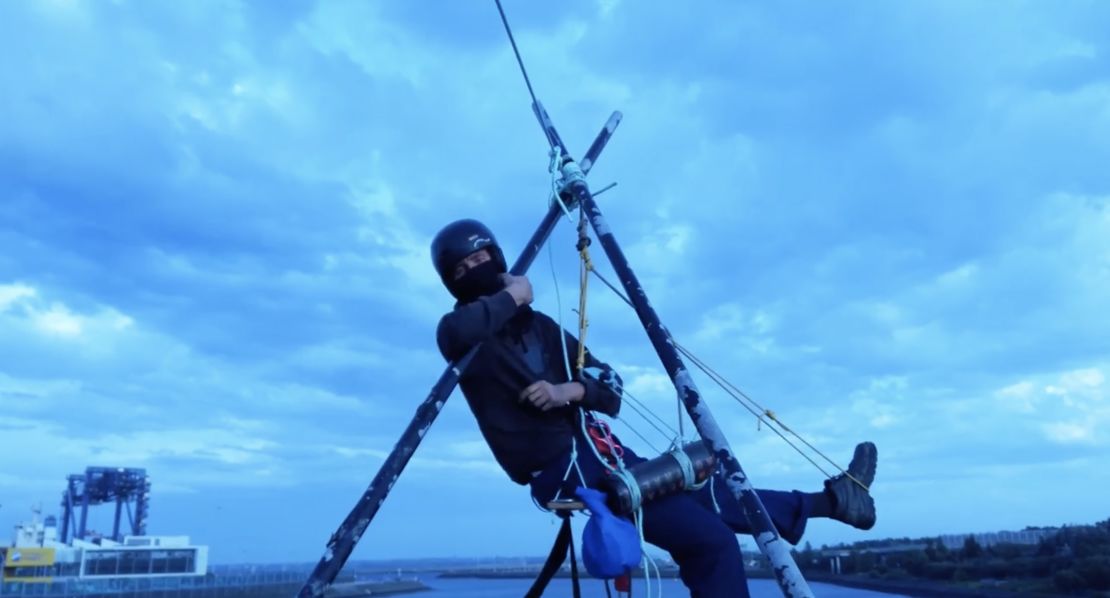
Arno said he spent a week in prison then four weeks in Villawood Immigration Detention Center before being sent back to Germany. His 23-year-old brother Tom, not his real name, was also deported for taking part in the protest and banned from entering Australia for three years. Now jobless, Arno is still trying to pay off thousands of dollars in Australian fines and deportation costs.
He says he doesn’t think tougher penalties in NSW will deter climate activists.
“People are really aware of what the consequences are for not acting and not resisting this extractive system,” he said. “And people also realize that this is the system protecting itself once again, prioritizing the profits of the wealthy 1% over the interests of the vast majority of the population.”
The climate emergency swayed votes at the last election, confirming views expressed in opinion polls that Australians want greater climate action. The election put more members of the Greens party, Australia’s most environmentally minded political group, in parliament, along with new teal Independents, who are arguing for an even faster transition to renewable energy than that promised by the Labor majority.
Newly elected Prime Minister Anthony Albanese has vowed to end the “climate wars” – the argument between left and right over the cost of both climate action and inaction – but so far disruptive climate protests have been a matter for the states.
System hardening against climate activists
NSW isn’t the only Australian state getting tough on climate activists. Tasmania is close to passing amendments to raise fines and impose longer prison sentences on protesters who obstruct businesses or cause “serious risk”. And Victoria is considering laws to target people protesting the logging of native forests.
The clampdown extends not only to people taking part in protests, but those involved in anything deemed associated with possible protest action – as was seen during last Sunday’s raid.
In a joint statement, 40 civil society organizations expressed alarm that NSW police had engaged in “preemptive policing” by putting the group under surveillance then sending in a helicopter, the dog squad, the riot squad and the raptor squad – among others – when the officers’ cover was blown.
“Sending in 100 armed police officers to threaten and intimidate people planning a peaceful protest is alarming and disproportionate,” Alice Drury, legal director of the Human Rights Law Center, said in the statement.
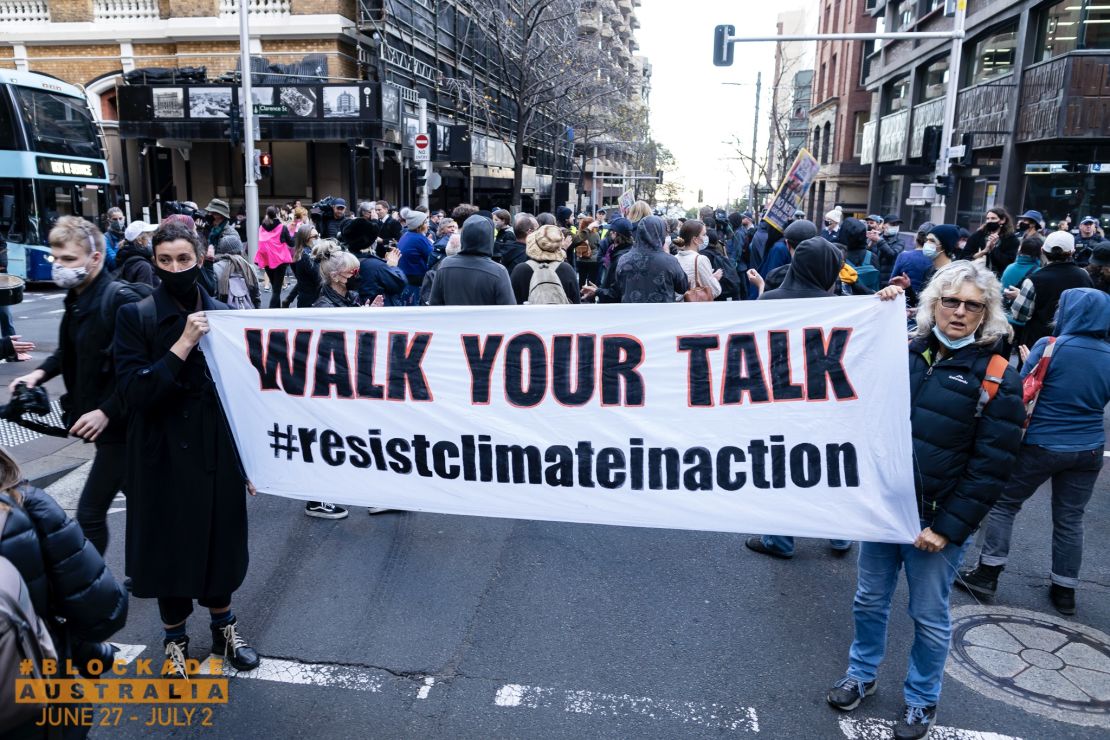
More than 250 police have been deployed in the greater Sydney region this week to prevent what they expect to be “considerable disruption.”
NSW Police arrested 10 people and asked for public help to identify others who took part. “Expect a knock on your door, we will be coming for you to be arrested,” said Dunstan, the acting assistant NSW Police commissioner.
“The behavior of this group was nothing short of criminal activity,” he added. “The throwing of bicycles the throwing of garbage bins, the throwing of other items in the path of police, in the path of media, in the path of innocent members of the public just walking by, will not be tolerated.”
Activists previously bailed risk jail if they go anywhere near the protest sites – or if they contact each other by any means.
Fuad, the activist, said they “really, really” don’t want to go to jail, but they claim they don’t have much of a choice. “I feel like we’re at a point now where we deeply need to escalate our response because we’re not being listened to.”
Blockade Australia doesn’t have a specific list of demands – they just want the government, corporations, and media to act in accordance with the scale of the climate emergency.
Fuad said their communities had suffered from the 2019-2020 bushfires that destroyed millions of hectares of land on the east coast, as well as the recent flooding in NSW and Queensland.
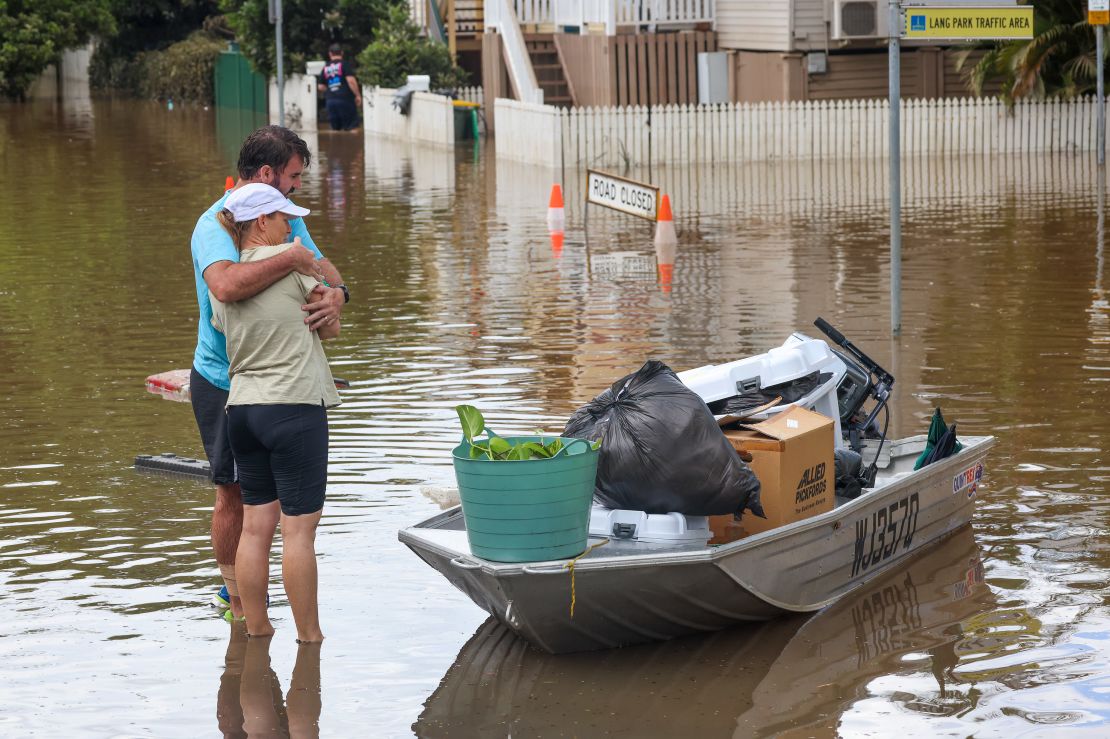
“My communities have been torn apart by climate disasters that are already here,” Fuad said.
“We’re an incredibly extractivist nation, and I think that young people are realizing that this is kind of the only choice we have left.”
